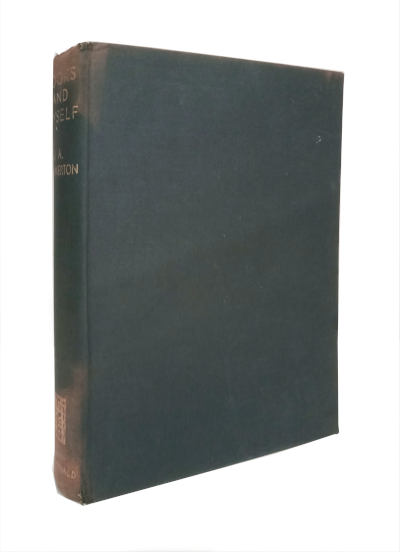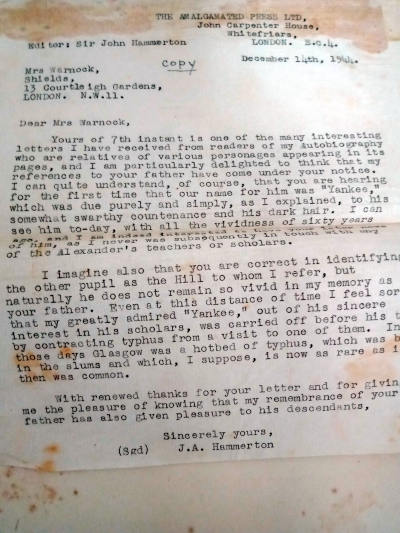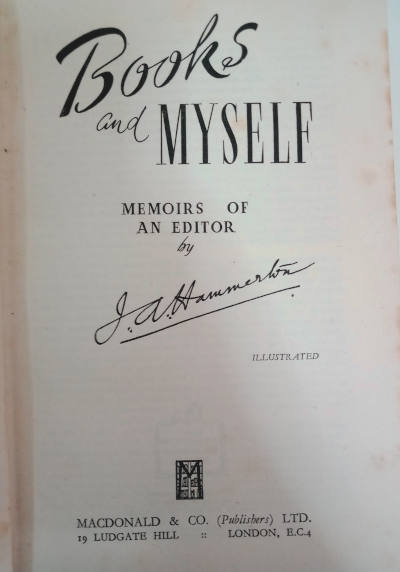About the author (from Wikipedia):
Sir John Alexander Hammerton (27 February 1871, in Alexandria, Scotland – 12 May 1949, in London) is described by the Dictionary of National Biography as “the most successful creator of large-scale works of reference that Britain has known”.
Hammerton contributed to the first edition of Mee’s Children’s Encyclopædia, which was a fortnightly series from 1908 till 1910 before being published in eight large volumes. Hammerton’s contribution consisted of compiling articles on ‘Famous Books’ and ‘Poetry’.
Hammerton’s greatest achievement was Harmsworth’s Universal Encyclopædia. It was published first as a fortnightly series from 1920 to 1922. The Encyclopaedia sold 12 million copies throughout the English-speaking world.
From 1914 to 1919, Hammerton was joint editor with Herbert Wrigley Wilson of the periodical The Great War: The Standard History of the All-Europe Conflict, published by the Amalgamated Press.
The first volume of The Great War concentrated on justifying Britain’s entry into World War I, and with encouraging the British people to sign up and fight. In its entirety, The Great War ran to 13 volumes.[2]
In 1933, Hammerton’s A Popular History of the Great War (in six volumes) was published. In his introduction to volume 1, Hammerton discusses the previous World War I series: ‘Although it remains a storehouse of information for future students of the period, “The Great War”, as that set of thirteen massive volumes was called, would now require to be largely re-written in light of later knowledge’.




